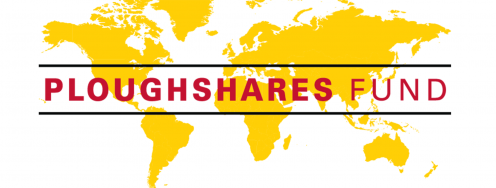A Tale of Two Victories: New START and DADT
The passage of major legislation during a lame duck session of Congress is a rare and interesting phenomenon. In the past year, it’s happened twice. In both instances, philanthropy played a vital role in pushing through victories on controversial, long-stalled policy issues.
On December 18, 2010, the Senate voted to repeal ‘Don’t Ask, Don’t Tell’, a 17-year old ban on gay and lesbian citizens openly serving in the U.S. military, by a margin of 65-31 with 6 Republican votes.
In a recent piece, The Chronicle of Philanthropy outlined the crucial role of philanthropy in DADT’s repeal. A combination of $12 million and a handful of sophisticated grantmakers resulted in a strategy effective enough to rally support and win over the Senate. These grants funded research proving that DADT increases military ineffectiveness and supported the media campaigns of groups representing those discharged following the ban. All of this work, along with grassroots efforts and lobbying support, ensured an end to DADT.
In addition to their support of advocacy, foundations also made investments in another, more discreet key area – operational support for non-profit organizations. Unrestricted grants allowed these organizations to build up their infrastructure for years, therefore increasing the eventual impact of their efforts when the moment for movement on DADT ripened.
Four days after DADT’s repeal, the Senate chose to act on another hotly contested issue – the New START Treaty. The agreement, which President Obama and Russian President Medvedev signed in April 2010, set significant reductions in U.S. and Russian nuclear arsenals and reinstated inspections of both countries’ weapons. The support of 13 Republicans secured a 71-26 vote in favor of the treaty.
In examining the efforts by the non-proliferation community in securing New START’s passage, the crucial role of philanthropy becomes even more lucid. Former Ploughshares Fund Executive Director Naila Bolus outlined the intense organization that was necessary to take advantage of a rare opportunity window for New START.
A lead funder in the peace and security community, Ploughshares Fund assessed other groups who had the capacity to affect key movement on New START, carefully selecting prominent military and national security experts, or “validators”, to bolster public support for the treaty. Rather than wait for grant proposals, Ploughshares Fund took a proactive role in identifying specific media experts, groups with the ability to influence Senators in swing states, and strategists to move at the right time. Along with other key supporters such as the Colombe Foundation and the John D. and Catherine T. MacArthur Foundation, Ploughshares Fund was able to supply the crucial financing necessary to give New START a final push through the Senate.
Both New START and DADT were issues ridden with resistance and political gridlock. To see them both passed by a divided Congress in the same week, during a lame duck session, seems from the outside to be nothing short of a miracle. But a deeper look reveals the major actors at play, who integrated campaigns of military validators, public support, and took advantage of an policy window to secure major victories.
The movement on DADT and New START both reveal the incredible influence philanthropy can have on policy. With thoughtful planning and investing, we can knock down the walls of resistance to major change on issues from civil rights to the safety of our world.
Co-authored by Megan Murphy




